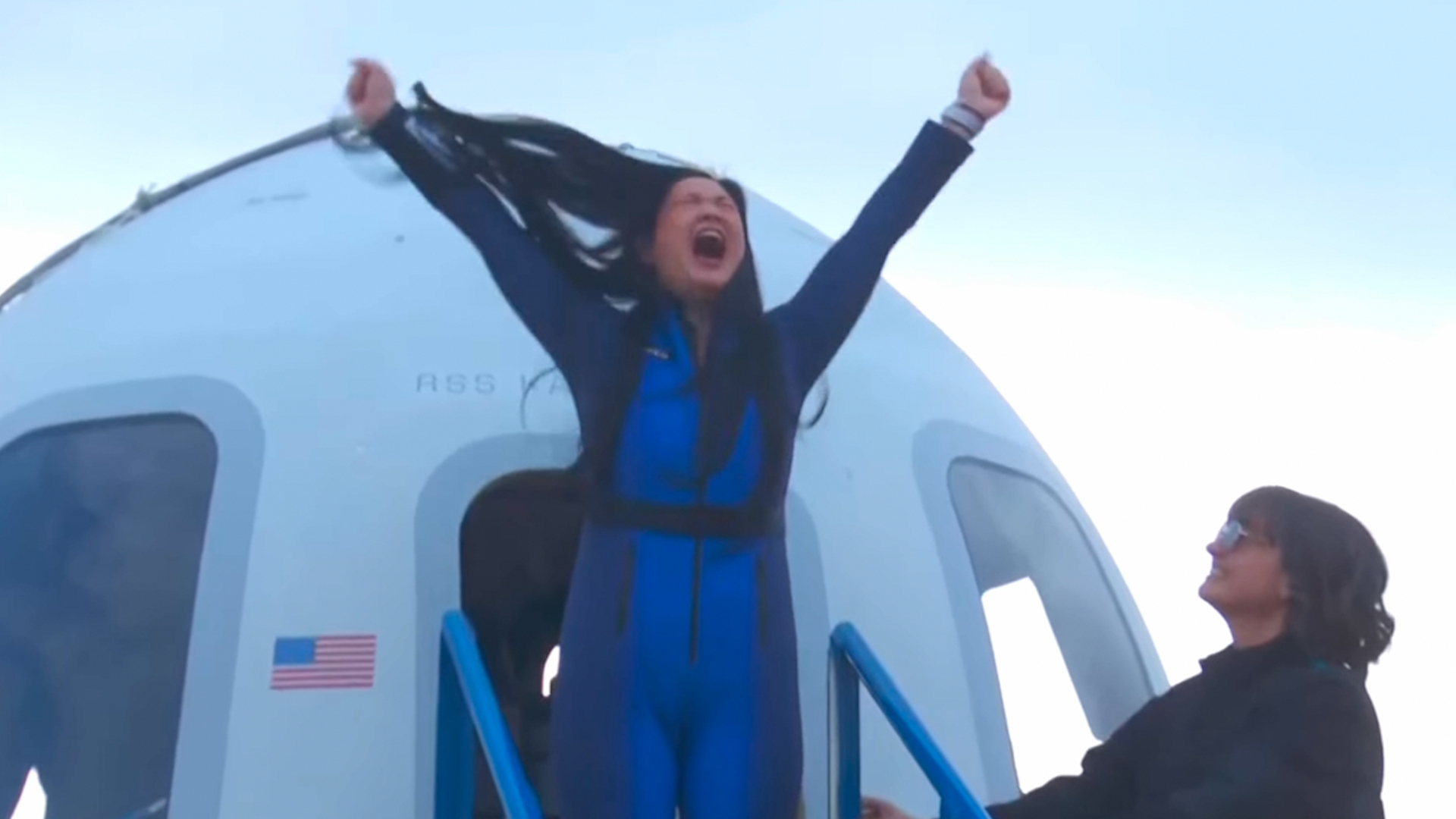US Is Leading World in Space, VP Mike Pence Says
The 2024 moon-landing goal shows the nation's "renewed vigor and vision."

WASHINGTON -- The United States is leading the world in space exploration once more but is still willing to work with "like-minded" countries to expand humanity's reach throughout the cosmos, Vice President Mike Pence told an international crowd today (Oct. 21).
Speaking at the 70th International Astronautical Congress here, Pence said NASA's push to send American astronauts back to the moon by 2024 shows a "renewed vigor and vision" for U.S. space exploration under the Trump administration.
"The truth is, for more than a generation, a vision for human space exploration had languished, in this country and around the world," Pence said. "But those days are over."
Related: Will Private Companies Beat NASA to the Moon?
"With America's renewed vision for human space exploration, we will lead mankind into the vast expanse of space," he added.
Earlier this year, Pence and the Trump administration tasked NASA with landing the first woman and the next man on the moon by 2024 using "any means necessary." That project, which NASA has named Artemis (after the twin sister of Apollo in Greek mythology) comes as NASA celebrates the 50th anniversary of its historic Apollo 11 moon landing in 1969, which sent astronauts Neil Armstrong and Buzz Aldrin to the lunar surface while crewmate Michael Collins remained in orbit.
The Apollo 11 crew was honored by the International Astronautical Federation's World Space Award, and Pence hailed Aldrin, Collins' grandson and Armstrong's son Mark during his remarks.
Get the Space.com Newsletter
Breaking space news, the latest updates on rocket launches, skywatching events and more!
"With Apollo in the history books, the Artemis mission has begun, and we are well on our way to making NASA's moon-to-Mars mission a reality," Pence said.
NASA has partnered with commercial companies to build elements of a planned space station near the moon, called the Gateway, to serve as a staging ground for future crewed missions. Meanwhile, the agency has tapped U.S. companies like SpaceX and Boeing to fly astronauts in space, and is working with Canada, Japan and Australia on its moon program.
Pence said that, while the U.S. aims to lead humanity's push into space, the country doesn't want to go alone.
"To be clear, our vision is to be a leader amongst freedom-loving nations on the adventure into the great unknown," he said. "The United States of America will always be willing to work closely with like-minded, freedom-loving nations as we lead mankind into the final frontier."
Pence also touched on national security and space, specifically the new Space Force, a sixth branch of the U.S. military that the Trump administration wants to oversee space military efforts. The work the Space Force does won't just be for the United States, Pence said.
"Soon it will be a reality, and the Space Force will be a vanguard for defending our nation and defending our freedom," Pence said, "and defending the rights of all nations in the vast expanse of space."
- NASA Orders More SLS Megarockets from Boeing for Artemis Moon Missions
- Lawmakers Grill NASA Chief on Moon-by-2024 Budget, Schedule
- NASA's 1st SLS Megarocket Launch to the Moon Could Be Delayed to 2021
Email Tariq Malik at tmalik@space.com or follow him @tariqjmalik. Follow us on Twitter @Spacedotcom and on Facebook.
Join our Space Forums to keep talking space on the latest missions, night sky and more! And if you have a news tip, correction or comment, let us know at: community@space.com.

Tariq is the Editor-in-Chief of Space.com and joined the team in 2001, first as an intern and staff writer, and later as an editor. He covers human spaceflight, exploration and space science, as well as skywatching and entertainment. He became Space.com's Managing Editor in 2009 and Editor-in-Chief in 2019. Before joining Space.com, Tariq was a staff reporter for The Los Angeles Times covering education and city beats in La Habra, Fullerton and Huntington Beach. In October 2022, Tariq received the Harry Kolcum Award for excellence in space reporting from the National Space Club Florida Committee. He is also an Eagle Scout (yes, he has the Space Exploration merit badge) and went to Space Camp four times as a kid and a fifth time as an adult. He has journalism degrees from the University of Southern California and New York University. You can find Tariq at Space.com and as the co-host to the This Week In Space podcast with space historian Rod Pyle on the TWiT network. To see his latest project, you can follow Tariq on Twitter @tariqjmalik.









